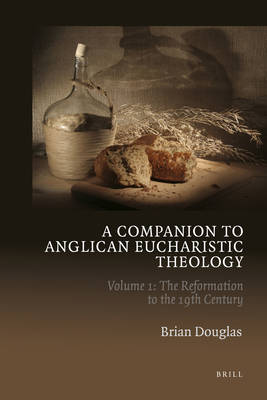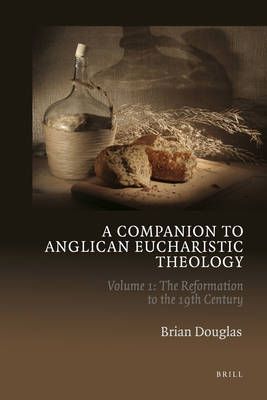
- Afhalen na 1 uur in een winkel met voorraad
- Gratis thuislevering in België vanaf € 30
- Ruim aanbod met 7 miljoen producten
- Afhalen na 1 uur in een winkel met voorraad
- Gratis thuislevering in België vanaf € 30
- Ruim aanbod met 7 miljoen producten
Zoeken
A Companion to Anglican Eucharistic Theology
Volume 1: The Reformation to the 19th Century
Brian Douglas
Hardcover | Engels
€ 421,45
+ 842 punten
Omschrijving
Anglican eucharistic theology varies between the different philosophical assumptions of realism and nominalism. Whereas realism links the signs of the Eucharist with what they signify in a real way, nominalism sees these signs as reminders only of past and completed transaction. This book begins by discussing the multifomity of the philosophical assumptions underlying Anglican eucharistic theology and goes on to present extensive case study material which exemplify these different assumptions from the Reformation to the Nineteenth century. By examining the multiformity of philosophical assumptions this book avoids the hermeneutic idealism of particular church parties and looks instead at the Anglican eucharistic tradition in a more critical manner.
Specificaties
Betrokkenen
- Auteur(s):
- Uitgeverij:
Inhoud
- Aantal bladzijden:
- 690
- Taal:
- Engels
Eigenschappen
- Productcode (EAN):
- 9789004219304
- Verschijningsdatum:
- 25/11/2011
- Uitvoering:
- Hardcover
- Formaat:
- Genaaid
- Afmetingen:
- 160 mm x 240 mm
- Gewicht:
- 1337 g

Alleen bij Standaard Boekhandel
+ 842 punten op je klantenkaart van Standaard Boekhandel
Beoordelingen
We publiceren alleen reviews die voldoen aan de voorwaarden voor reviews. Bekijk onze voorwaarden voor reviews.








